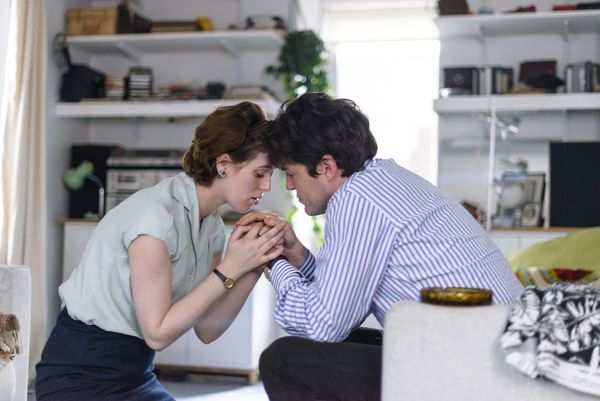Black Bag
by George Wolf
What is more diabolical: enacting a global plan for widespread destruction, or pursuing a selfish agenda in your relationship, ready to twist the knife precisely where it hurts your partner the most?
Black Bag has a satchel full of fun weighing the two options, as director Steven Soderbergh and a crackling ensemble contrast the power plays in both love connections and spy games.
Michael Fassbender and Cate Blanchett (already sounds good, right?) are downright delicious as Londoners George Woodhouse and Kathryn St. Jean, master spies and devoted spouses. He’s emotionless and tidy, an expert cook, and a dogged sleuth with a hatred of dishonesty. She’s cool, calculating and seductive, with a wry sense of humor, a prescription for anxiety meds and a sudden cloud of suspicion around her.
Could Kathryn really be the mole who has stolen a lethal malware program and is shopping it to Soviet extremists? And can George be trusted with the job of investigating his own wife? The agency director (Pierce Brosnan) doesn’t hold back his distaste for the predicament.
While hosting a dinner party for two other couples who also mix business and pleasure – Freddie (Tom Burke)/Clarissa (Marisa Abela, so good as Amy Winehouse in Back to Black) and James (Regé-Jean Page)/Zoe (Naomie Harris) – George spots the first clue that Kathyrn’s allegiances may be compromised.
So the game is on.
Veteran screenwriter David Koepp follows his minimalist winner Presence with a smart and twisty throwback drama, relying less on action and more on dialog and plot, often staying a step ahead of your questions about internal logic. There’s a good bit of dry British humor here, too, which these stellar performers dig into with understandable relish.
From the opening prologue – an extended take that winds through the cityscape with purpose – Soderbergh seems perfectly at home with this self-assured style . The aesthetic is lush and sometimes showy, but in a relaxed manner of somebody who knows his audience is going to appreciate it.
They should. Black Bag is an adult-centric drama that offers bona fide movie stars, glamour and romance, challenges, surprises and humor. And it gets it all done in 90 minutes. Throw in a fine meal beforehand, and you’ve got a damn fine date night that just might put you in a pretty friendly mood when you get home.
Don’t waste it.



